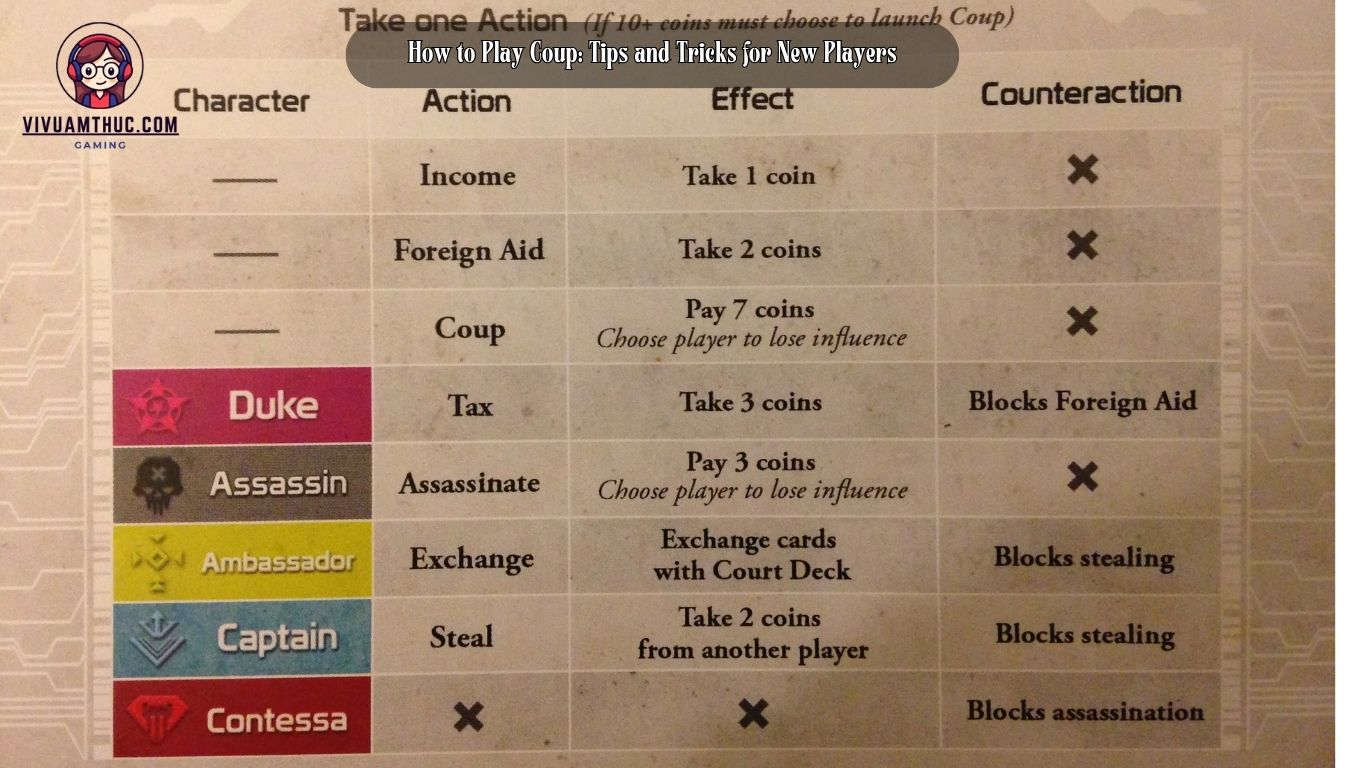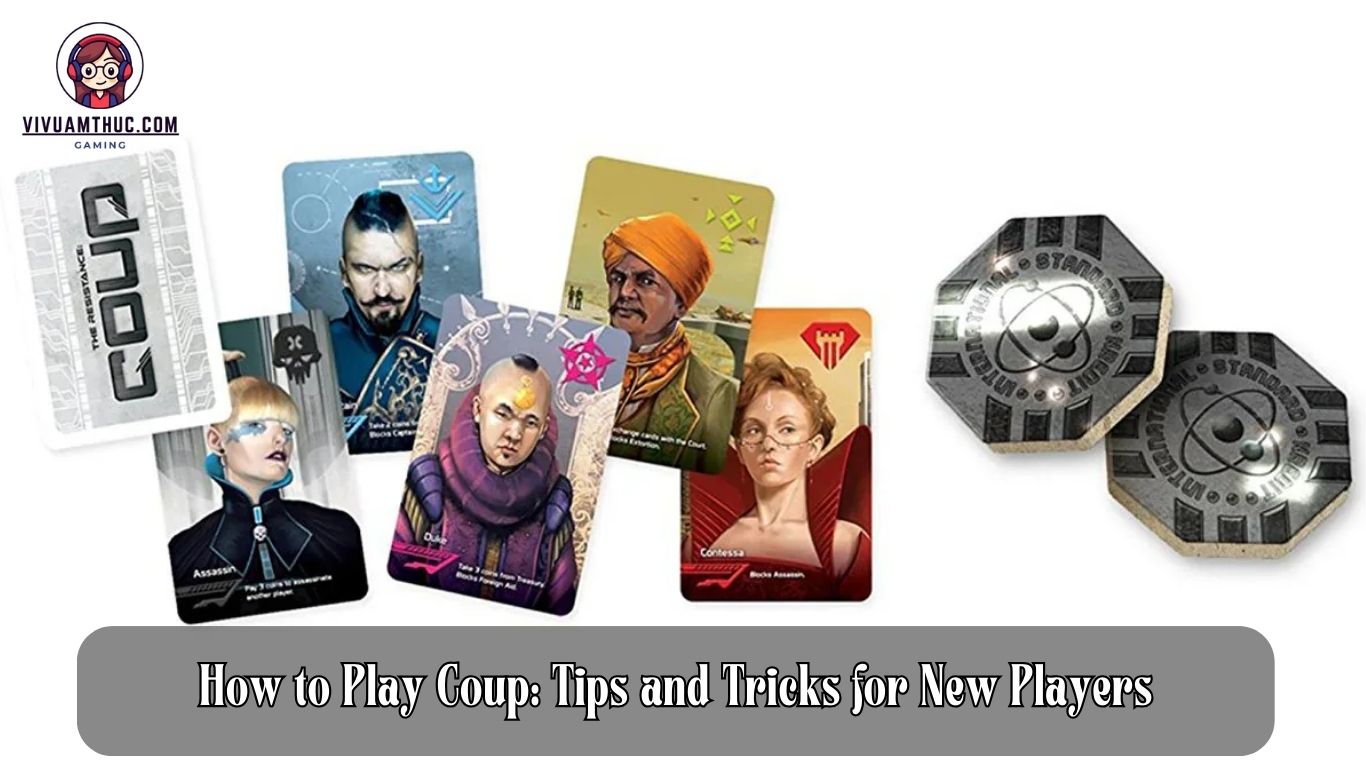Expanding Your Coup Strategy
To dominate Coup, understanding the interplay between bluffing, card abilities, and resource management is vital. The game’s layered mechanics create opportunities for both bold and subtle plays, rewarding players who can adapt to dynamic scenarios. Below are advanced techniques and a deeper dive into the nuances of this thrilling game.
The Psychology of Bluffing in Coup
Bluffing is central to the game, but its effectiveness hinges on timing and consistency. Bluffing isn’t merely about lying—it’s about crafting a narrative that your opponents believe.
- Create Patterns: Claim a specific role and perform its action multiple times to build credibility. For example, consistently claiming the Duke and collecting taxes makes challenges less likely.
- Disrupt Opponent Assumptions: Occasionally shift your claims, especially if you’ve used Ambassador to swap cards. A change in behavior can cause confusion and misjudgment.
- Preemptive Bluffing: Even when you’re not at immediate risk, claiming high-value roles (like Contessa) can deter potential attackers, ensuring you maintain influence.
Countering Aggressive Players
Aggressive opponents often focus on eliminating threats early. To counter such tactics:
- Defensive Positioning: Use Contessa to nullify assassinations, especially if targeted multiple times.
- Resource Denial: As the Captain, stealing coins from aggressive players slows their ability to Coup.
- Team Psychology: Rally other players to collectively weaken the aggressor. Collaboration is temporary but effective.
Fine-Tuning Challenges
Challenging a player’s bluff can alter the game’s trajectory, but it requires calculated risk:
- Probability Analysis: Assess the likelihood of a player holding a specific card based on revealed cards and actions taken.
- Situational Context: If a player’s actions seem desperate or inconsistent, a challenge might be warranted. However, avoid reckless challenges that expose you unnecessarily.
Adapting to Player Count
The dynamics of Coup shift depending on the number of players:
- Small Games (2-3 Players): The game becomes more analytical, with limited room for deception. Focus on accurate reads of your opponent.
- Larger Games (4-6 Players): Bluffing becomes easier, as the pool of cards and actions increases uncertainty. In this environment, subtle moves and alliances shine.
Enhancing the Social Aspect of CoupCoup thrives as a social deduction game, blending strategy with interpersonal interaction. The ability to read your opponents and mask your intentions is just as important as card mechanics.
- Body Language: Watch for tells, such as hesitation or nervous laughter, which can betray a bluff. Conversely, practice controlling your own reactions.
- Mind Games: Engage in playful banter or distraction to manipulate others’ focus. This can shift attention away from your actions.
- Forge Temporary Alliances: While short-lived, alliances can help eliminate strong competitors. Just be cautious—alliances are fragile and often break once mutual goals are met.
Variants and Expansions for Replayability
- Reformation Expansion: Introduces factions, allowing players to join teams. This adds a cooperative element, shifting the game’s dynamics.
- House Rules: Customize Coup with unique rules, such as additional character abilities or modified starting resources, to keep the experience fresh.
Why Coup Is a Timeless Classic
Coup’s simplicity, replayability, and blend of strategy and psychology make it a staple for game nights. It balances accessibility for newcomers with complexity for seasoned players. Whether you’re sharpening your bluffing skills or crafting alliances, Coup offers endless possibilities for fun and intrigue.
For more insights into games and other engaging activities, explore Vi Vu Ẩm Thực















